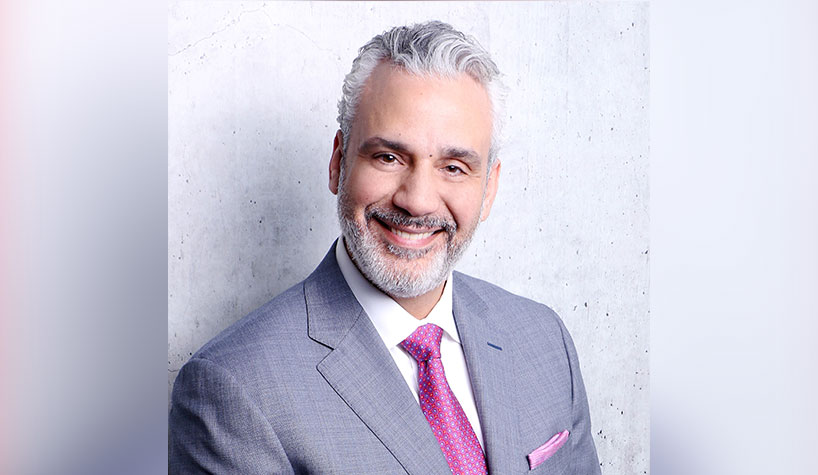By Mohamed Khanat
Out of the ashes of the recent crisis, several trends have risen that may be here to stay, for better or for worse. One standout trend is consolidation. As hotels strive to do more with less, more responsibilities are being consolidated under fewer roles.
Which explains the recent surge in cluster revenue positions. No longer are hotel revenue managers responsible for a single property, but many now oversee a cluster of a dozen or more hotels. If you’re a newly appointed cluster revenue manager—or an existing one with a recently expanded portfolio—you may feel torn between gratitude for having a job and trepidation over the size of your workload.
Given the broad scope of responsibilities and the complexities of the position, how can hotel companies prevent cluster revenue management from becoming a total, well, cluster? It starts with asking the right questions.
What is Cluster Revenue Management?
Cluster revenue management, or CRM for short (not to be confused with customer relationship management, a whole other ballgame), comes in many shapes and sizes. What they all have in common is revenue responsibilities for multiple hotels, anywhere from two or three to 40 (any more and it’s not a cluster, it’s an empire).
How the position is structured will depend on the types of hotels involved and the resources available, but properties are typically clustered by region or brand. It’s easier to manage a group of small, limited-service hotels within the same brand and region than a group of full-service properties scattered across brands and regions.
Like all revenue managers, the CRM’s primary objectives are to increase market share and maximize revenue for the properties they oversee. This is accomplished by managing inventory, pricing and distribution and striving for the optimal business mix.
What are the Advantages?
The main motivation for clustering is to create efficiencies and save costs. For smaller properties with limited resources, a shared revenue manager is better than no revenue manager at all. For clusters of larger hotels, revenue responsibilities may be managed by a team, allowing members to specialize in areas such as distribution or forecasting.
Other advantages include alignment of pricing, market and distribution strategies within the cluster, shared best practices and technology platforms, and greater negotiating power with distributors, vendors and advertising platforms.
What are the Challenges?
With cloud technology, cluster revenue managers can work virtually anywhere, and many are based off property at a regional or corporate office, agency or home office. While this may provide a quieter work environment with fewer disruptions, it can also make it harder to instill a revenue culture on property.
Another big challenge is time; CRMs are pulled in many directions. Hotel managers and operators, under immense pressure to generate cash flow and save costs, can be especially needy these days. They might not understand why the CRM can’t always be available to them, especially if they’re used to having a dedicated revenue manager on property.
Then, there’s data management and reporting. The vast amount of internal and external data revenue managers must process is challenging enough for a single property; for multiple properties, it can be overwhelming. Owners and operators rely on revenue reports to anticipate demand, guide sales and marketing strategies and plan expenditures.
If the CRM is buried in countless spreadsheets and switching among multiple revenue systems, reporting can be slow and prone to inaccuracies. Further, recipients may find it difficult to interpret reports and find the data they need to make informed decisions.
How can Technology Play a Role?
Revenue management systems (RMS) help hotel companies overcome these obstacles by automating data collection, reporting and decision-making, thereby freeing up CRMs for strategic tasks and consultations with properties.
RMS solutions with advanced capabilities can even help CRMs roll up data from multiple properties in one place. With a snapshot of revenue performance for all properties on a single dashboard, CRMs gain the unique advantage of being able to break down performance and the forecast by location, brand, market segment and other variables, and drill down to determine the actions needed to boost performance.
By using a combination of pre-built reports, customized ad-hoc reports and interactive dashboards, the CRM can ensure the right information gets to the right people. With data visualization features like charts and graphs, users and recipients will find it easier to interpret reports and identify important trends and variances.
How can You Position CRM for Success?
While 2020 was the worst year on record for U.S. hotel performance, 2021 stands to be the strongest ever in RevPAR growth, according to STR data. If the CRM is operating inefficiently or stretched to the limits, opportunities will get missed, and no property can afford that in this economic climate.
To ensure nothing falls through the cracks, corporate offices must clearly define the role and expectations of the CRM, delineate responsibilities among corporate and on-property staff, and provide the advanced tools and support needed to maximize productivity.
CRMs can play their part by working with property and corporate staff to establish a schedule of reporting, meetings and availability. They should look to structure their time so they can be there when property staff need them, prioritize tasks that generate the strongest results and reserve time for upgrading skills and knowledge.
For leaner to be better, it requires close coordination among sales, marketing and revenue management teams, with everyone working toward the shared objectives of maximizing revenue and recovering from the crisis as quickly as possible.
Is the Cluster Trend Only Temporary?
As revenue technology continues to provide new ways to automate data analysis and intelligent decision-making, revenue management will become even more efficient and scalable, making the cluster approach an enduring trend that will continue well beyond recovery.
With the right teamwork, tools and support, a CRM can manage multiple hotels as effectively as a single property revenue manager. Hotel companies would be wise to act now to find their own answers to these questions and put the necessary elements into place.
Mohamed “Mo” Khanat is VP, global account management, IDeaS, which offers revenue management solutions for business of all types and sizes in the global hospitality and travel industries.
This is a contributed piece to Hotel Business, authored by an industry professional. The thoughts expressed are the perspective of the bylined individual.



